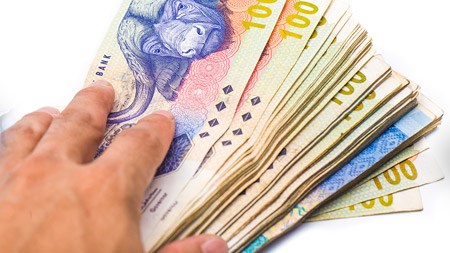The 2016 Budget saw an increase in transfer duty on property over R10 million. What are the implications for the property market?
NOTE - Transfer duty values have changed as per the 2017 Budget. Please refer to this article for the latest Transfer Duty rates
On the 24th of February, Finance Minister Pravin Gordhan delivered what has been largely been described as an “inclusive” and “assertive” budget aimed at restoring confidence in the economy both locally and abroad. While generally well-balanced and accommodative, there were inevitably areas where increases had to be made.
For instance, there was an increase in the fuel levy, various ‘sin’ taxes were raised and a new tyre tax was introduced. Measures to strengthen estate duty and donations duty were proposed, capital gains tax was increased, and an increase from 11% to 13% in transfer duty on properties costing more than R10m was also announced.
The transfer duty on properties now applies as follows:
- R0 – R750 000: 0% transfer duty
- R750 000 – R1 250 000: 3% of the value above R750 000
- R1 250 001 – R1 750 000: R15 000 + 6% of the value above R1 250 000
- R1 750 001 – R2 250 000: R45 000 + 8% of the value above R1 750 000
- R2 250 001 – R10 000 000: R85 000 + 11% of the value exceeding R 2 250 000
- R10 000 001 and above: R937 500 + 13% of the value exceeding R10 000 000
According to industry experts, the transfer duty increase is essentially a form of wealth tax which may dampen sentiment to a degree at the higher end of the residential property market and affect the ‘tradability’ of luxury properties.
But is the increase really going to disincentivise buyers and trade? Probably not. To put things into perspective, those who purchased a property for R11m prior to the 29th of February 2016 would have paid R1 047 500 in transfer duty. Following the transfer duty increase, the same property will now cost R1 067 500 or a ‘mere’ R20 000 more from the 1st of March onwards.
Although increases are never welcome, the reality is the transfer duty increase is actually fairly negligible at the ‘bottom end’ of the luxury property tier and most buyers purchasing in this price bracket should be able to absorb it fairly easily.
That said, the higher up the luxury scale a buyer goes the more expensive things will become thanks to the increase. No doubt this will be a consideration for those purchasing property at the top end going forward.
It’s also questionable that the increased transfer duty will have any real bearing on foreign investor sentiment. This is due in large part to the fact that any increase is offset by the weak rand which has made South African property very accessible and attractive to many foreign investors.
Indeed, Gordhan’s budget should have gone some way to assuage any concerns investors may have had in that it demonstrated a commitment to greater stability through fiscal consolidation and cost containment.
If anything, one would perhaps surmise that the increase in transfer duties would have a greater impact on the commercial property market. That said, this is also debatable given that most commercial properties are typically purchased in a legal entity which would attract a flat transfer duty rate, regardless of the size of the purchase.
Overall it seems the transfer duty increase will have a fairly negligible impact on the property market going forward. The bottom line is that property is and should remain a good investment, particularly in a volatile environment where uncertainty reigns supreme.




